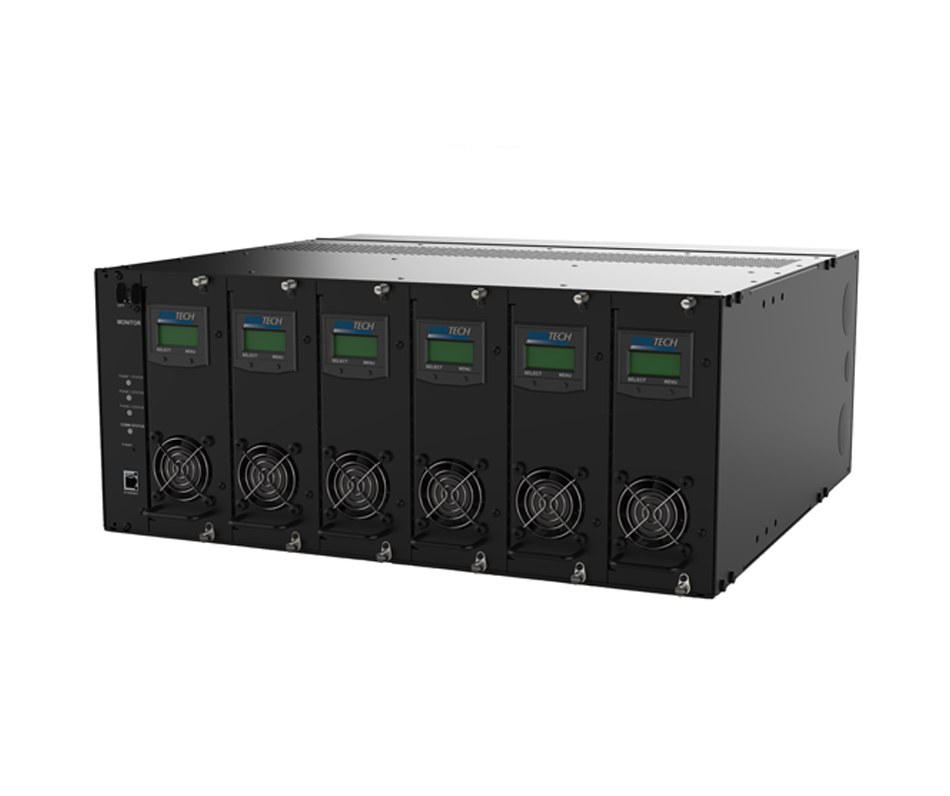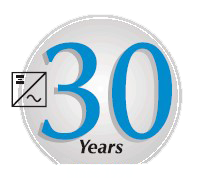In industrial settings, the efficient and reliable conversion of direct current (DC) to alternating current (AC) is crucial for powering various equipment and machinery. And AC power industrial inverters play a pivotal role in this conversion process.
These power inverters are of two types: Single-phase and three-phase.
Single-Phase AC Inverters
They utilize a single AC waveform with a sinusoidal shape, oscillating between positive and negative cycles. These inverters have two output terminals: a live wire (the phase wire) and a neutral wire.
You can use them in residential applications and small-scale commercial setups with relatively lower power demand.
Advantages
1. Simplicity
Single-phase systems are simpler regarding wiring and installation than three-phase systems. This simplicity translates to lower costs, making them an attractive option for smaller applications.
2. Widespread Availability
Single-phase power is the most commonly available electrical service in households and small businesses. It makes single-phase inverters readily compatible with existing electrical infrastructure.
Applications
1. Residential Use
Use single-phase inverters in residential solar power systems to convert DC power generated by solar panels into usable AC power for household consumption.
2. Small Commercial Operations
These inverters are suitable for powering small commercial operations such as retail stores, offices, and restaurants.
Three-Phase AC Inverters
These AC power industrial inverters convert DC into three-phase AC power. This power consists of three alternating waveforms, each separated by 120 degrees in phase, resulting in a more balanced and consistent power output.
These inverters have four output terminals: three live wires (phases) and a neutral wire.
They are common in industrial applications with high power demand.
Advantages
1. Power Efficiency
Three-phase power distribution is more efficient than single-phase, allowing for continuous power delivery with reduced losses. This efficiency is particularly beneficial for industrial operations with high-power requirements.
2. Smooth Power Output
Three-phase AC inverters offer a smoother and more consistent power output than single-phase inverters.
3. Higher Power Capacity
They can handle significantly higher power capacities compared to single-phase inverters. Like operating larger motors, heavy machinery, and industrial equipment with high power demands.
Applications
1. Data Centers
Data centers require reliable and efficient power delivery to run numerous servers and equipment. These inverters ensure a stable power supply for uninterrupted operations.
2. Renewable Energy Systems
They are vital in large-scale renewable energy systems like solar or wind farms. They convert the DC power generated by solar panels or wind turbines into three-phase AC power, efficiently integrated into the electrical grid.
3. Electric Vehicle Charging Stations
As electric vehicles (EVs) become more prevalent, the demand for charging stations continues to rise. High-power charging stations use three-phase inverters to convert the grid power into the three-phase AC power required to charge EVs rapidly.
4. Construction Sites
Construction sites often require robust and reliable power sources to operate heavy machinery, power tools, and temporary lighting systems. And use these inverters to obtain power for these applications, ensuring smooth and efficient construction operations.
5. Mining and Oil Extraction
The mining and oil extraction industries rely on powerful machinery and equipment for extraction, processing, and transportation. Three-phase inverters can power industrial pumps, conveyors, crushers, and other equipment.
6. Large-Scale HVAC Systems
Heating, ventilation, and air conditioning (HVAC) systems in large commercial buildings, factories, or data centers often require three-phase power for efficient operation.
7. Railway and Transportation
Railways and other transportation systems rely on electric power for various functions, including propulsion, signaling, and lighting. These AC inverters convert DC power from overhead lines or onboard batteries into AC power to efficiently operate trains and transportation systems.
Accounting for the widespread use of these AC inverters, you can select any depending on your power requirements, infrastructure compatibility, and the specific application. And for the finest AC power industrial inverters, you can check out Exeltech!





